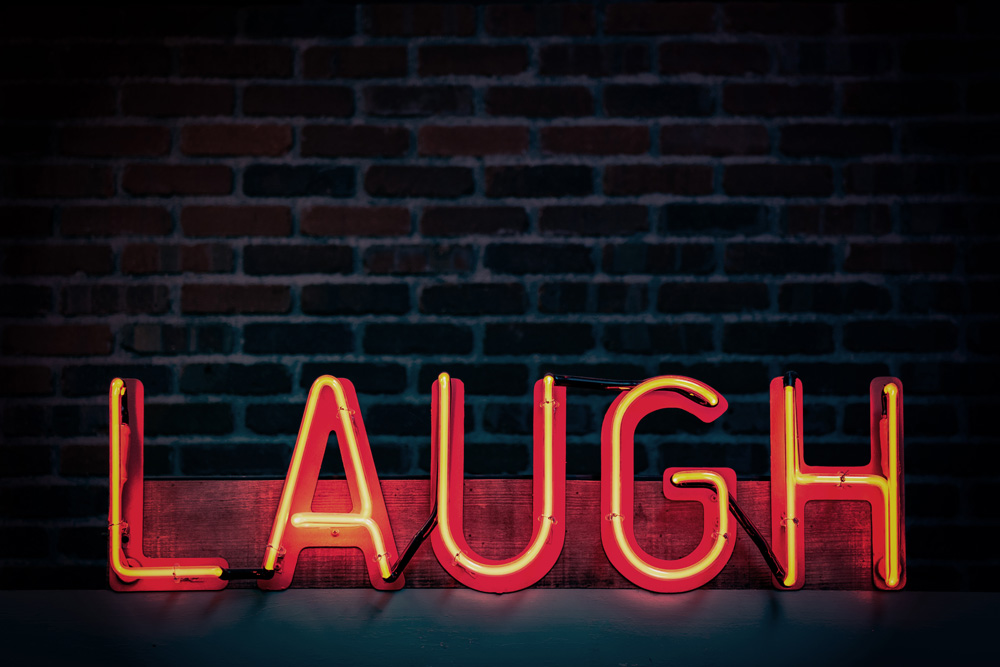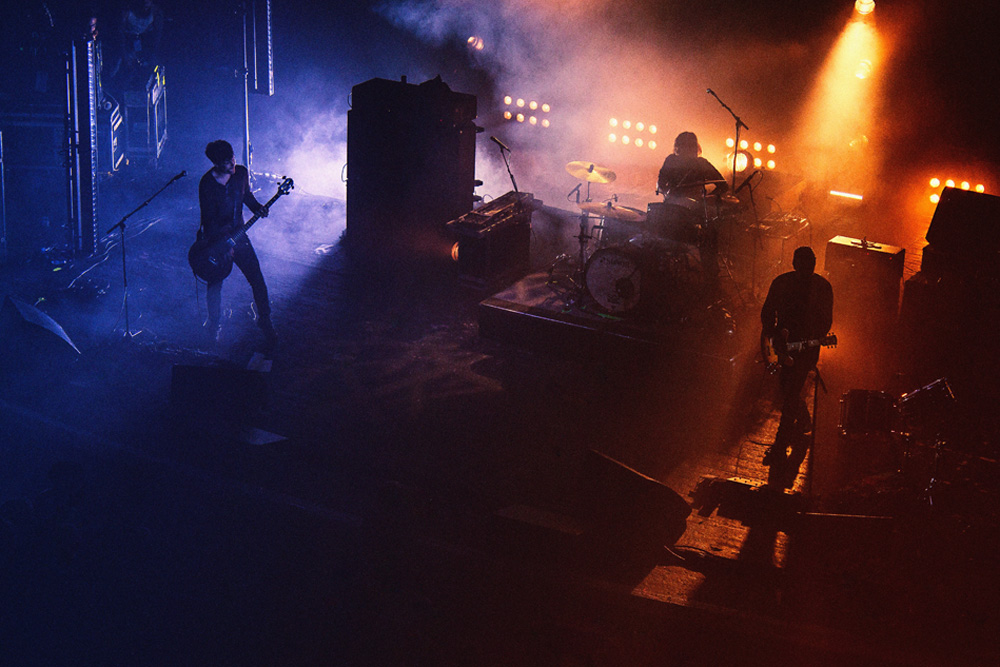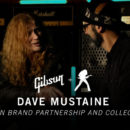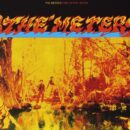MGM Television is developing Scenes from an Italian Restaurant, a television series based on the lyrics of Billy Joel’s hits. This is the latest endeavor by a studio in lyric-inspired scripted entertainment, following Heartstrings, a series inspired by Dolly Parton’s hits, Heart of Life, a pilot inspired by John Mayer’s song of the same name, and talk of a forthcoming series inspired by Plain White T’s "Hey There Delilah."
MGM licensed Joel’s entire catalog for the series, which we expect will be populated by characters from his songs. Joel is partnering with MGM as an executive producer, and his music team will reimagine and rearrange the tracks with his input.
But what if Joel didn’t want his music brought to life on screen? At what point does one need permission to create scripted entertainment inspired by song lyrics?
This is determined by the intellectual property laws that protect creative works, such as copyright and trademark. Here, it generally depends on whether the script “copies” the lyrics in a way that infringes on copyright protection. As discussed below, the Copyright Act (the “Act”) draws a fine (and blurry) line between inspiration and infringement with respect to scripted entertainment inspired by song lyrics. Producers should consult with experienced counsel before developing any entertainment inspired by copyrighted work, be it popular music or otherwise.
Copyright Protection Basics
The Act protects an “original work{} of authorship fixed in any tangible medium of expression” by granting the creator certain exclusive rights with respect to the work. These rights include the exclusive right to reproduce the work and the exclusive right to prepare (or license) any derivative works (i.e., any subsequent works based upon one or more protected element(s) of the work). Thus, when a work is protected by copyright, any action covered by these rights can only be taken by the copyright owner or with the copyright owner’s permission; otherwise, the action may constitute copyright infringement.
To establish copyright infringement, a plaintiff generally must prove that: (i) the plaintiff owns a protected work; and (ii) the defendant copied such work in a manner that is actionable. For element (i), song lyrics are subject to copyright protection under the Act. For element (ii), defendant need not copy the whole work; indeed, even the copying of short snippets leads to infringement claims—and “inspiration” can be sufficient proof of in-fact copying. However, whether such copying is actionable is a bit trickier.
Actionable Copying Under the Act
Actionable copying exists if there is a “substantial similarity” between the allegedly infringed and infringing works. Courts tend to measure substantial similarity by considering the qualitative and quantitative significance of the copied portion in relation to the allegedly infringed work as a whole. Note that, in the words of the leading US copyright treatise, the determination of substantial similarity “presents one of the most difficult questions in copyright law, and one that is the least susceptible of helpful generalizations.” That said, the following sections consider certain types of lyric-inspired scripted entertainment and associated risks with respect to copyright infringement.
Full Reproduction of Lyrics in a Script
If a song’s lyrics are protected by a valid copyright, a script that quotes them verbatim and without permission may infringe that copyright. For example, imagine that a character in a film quotes the lyrics of the 1972 hit song “Brandy (You’re A Fine Girl)” by Looking Glass (“Brandy”), from start to finish. Quantitatively and qualitatively, the film uses 100 percent of Brandy’s lyrics. Thus, substantial similarity exists, and, assuming the other elements of copyright infringement are met, the permission of Brandy’s lyricist is required. Note that it is immaterial whether the film contains far more creative material than that which it took from Brandy’s lyrics. To quote Judge Learned Hand, “{n}o plagiarist can excuse the wrong by showing how much of his work he did not pirate.”
Such blatant infringement is rare, but it isn’t unimaginable in the current content boom. Consider Brandy again: the upbeat tune tells a story in a busy harbor town of a barmaid whom visiting sailors favor, but who nonetheless fixates on a sailor who left her for his life, his love, his lady—the sea. Written in narrative form, Brandy’s lyrics are ready-made dialogue for a character to tell that story in a script (requiring only minor editing to remove “echo” phrases).
Partial Reproduction of Lyrics in a Script
But what if a script only copies part of a song’s lyrics? Overall, the shorter the portion copied, the less likely it is that the lyrics and script are substantially similar. For example, even if the aforementioned hypothetical film removed Brandy’s echo phrases, it would still be substantially similar to Brandy’s lyrics because the echo phrases are immaterial to Brandy’s lyrics as a whole.
However, by no means is there any magic word count that avoids substantial similarity. Such quantitative analysis must always occur in the shadow of the qualitative significance of the part at issue. For example, one court concluded that the copying of a musical phrase consisting of four notes and two words can suffice for substantial similarity where the phrase is “the heart of {plaintiff’s} composition.” The music industry takes the stance that the Act protects even one line of lyrics.
That said, substantial similarity only considers protected portions of the original work. Thus, if a script only reproduces unprotected portions of a song’s lyrics, the works are not substantially similar.
Among the unprotected elements of a work are elements that cannot independently qualify as an “original work of authorship” under the Act, such as commonplace expressions. For example, a recent copyright infringement case considered whether the lyric, “Playas, they gonna play / And haters, they gonna hate,” qualifies as an original work of authorship. The district court dismissed the complaint, holding that the lyric is too unoriginal to be protected as a matter of law, given the pervasiveness of the concepts of “players” and “haters” in popular culture before they were included in the allegedly infringed song. However, the appellate court reversed, reasoning that the plaintiff plausibly alleged enough facts for this question to be submitted to the jury, and noting in dicta the danger of deciding originality as a matter of law given its logical root in public opinion.
Likewise, the Act likely does not give the creator of the Brandy lyrics a monopoly over a phrase such as, “You’re a fine girl,” given its ordinary verbiage and usage. However, an argument to the contrary is more colorable for a more iconic phrase, such as “my life, my love, and my lady is the sea,” or simply as the phrase at issue lengthens.
Adaptation of Lyrics in a Script
Nonliteral substantial similarity is an even grayer area. Of course, the mere fact that an allegedly infringing work does not quote, and only paraphrases, the allegedly infringed work does not complicate substantial similarity. Quoting Judge Learned Hand again, “It is, of course, essential to any protection of literary property … that the right cannot be limited literally to the text, else a plagiarist would escape by immaterial variations.” Rather, the complication occurs when the alleged similarity is more abstract, such as when a script adapts the story told in a song’s lyrics.
In general, courts are willing to find substantial similarity in this area for adaptations that are qualitatively and/or quantitatively comprehensive. Balanced against this is the idea/expression dichotomy or the notion that copyright protects the expression of ideas, but not ideas themselves. The line between protected expression and unprotected idea is blurry, but an expression’s protection essentially comes from detail (such as scenes, events and/or characterization) as opposed to merely generic wordings or basic concepts. As discussed above, a court will ignore similarities to mere ideas, as substantial similarity must exist with respect to protected aspects of the allegedly infringed work.
For example, Brandy could inspire a scriptwriter to follow the romantic encounters between a barmaid and sailors with varying levels of emotional maturity. This general plot would likely be an unprotected idea; thus, without more, Brandy and this script would not be substantially similar.
But Brandy packs quite a story into three minutes and eight seconds. It describes the day the barmaid and her favored sailor met, their ensuing courtship, and its demise. If the script were to also follow this structure and include these details, it may be similar to Brandy’s expression of ideas.
Even so, such structure and details may be excluded from a substantial similarity analysis as unprotected “scènes à faire.” Scènes à faire are stock scenes or elements that necessarily flow from an unprotected idea.
Examples of scènes à faire include setting a story of a broken-hearted lover in a country song in a barroom with a jukebox and costuming a superhero in boots and a cape. Likewise, details such as a harbor-town setting or a broken-hearted walk through empty streets may be scenes à faire flowing from the general themes of sailors and unrequited love, and thus ignored for the purposes of substantial similarity.
Trademark Infringement on the Horizon
To be clear, even if one successfully navigates these tricky copyright shoals (pun intended), there may still be a trademark issue. Under the Lanham Act, one cannot create the impression of an association, affiliation or sponsorship if none exists. Accordingly, a distinct set of concerns arises for scripted entertainment inspired by song lyrics if the public is likely to believe that the source of the lyrics is affiliated with the entertainment (and the source is not).
Paul Bernstein, vice-chair of Venable LLP’s Entertainment and Media Group, is a general corporate lawyer whose practice focuses on representing companies and individuals in the entertainment and media industry. Carly Trainor is an associate in Venable’s Corporate Practice.











